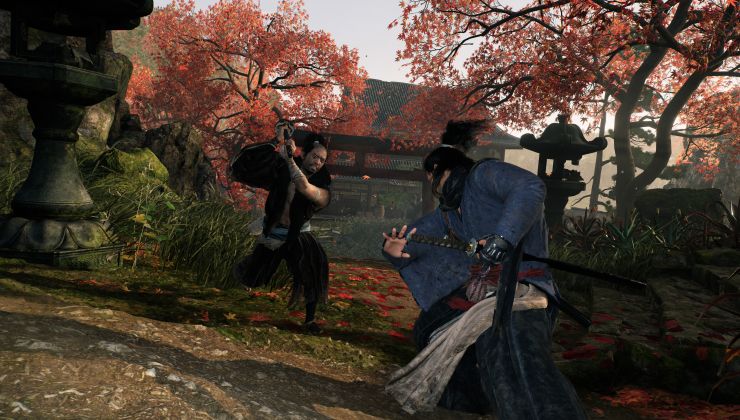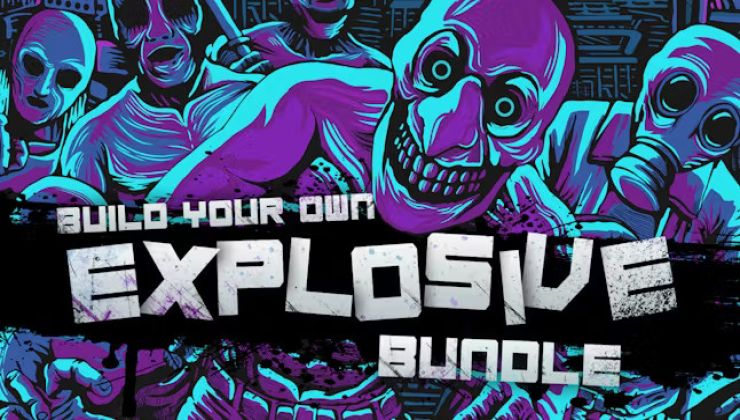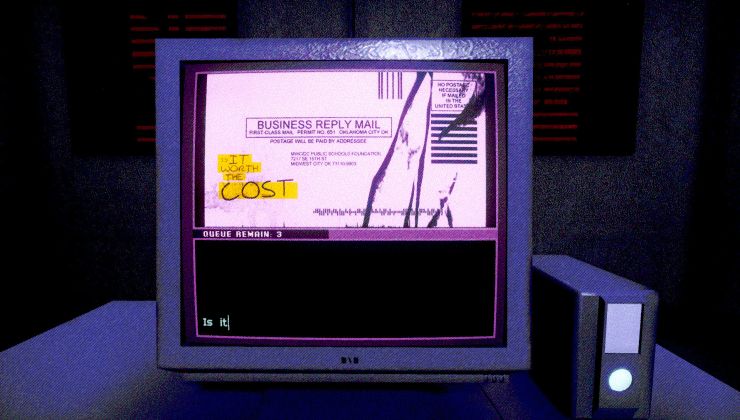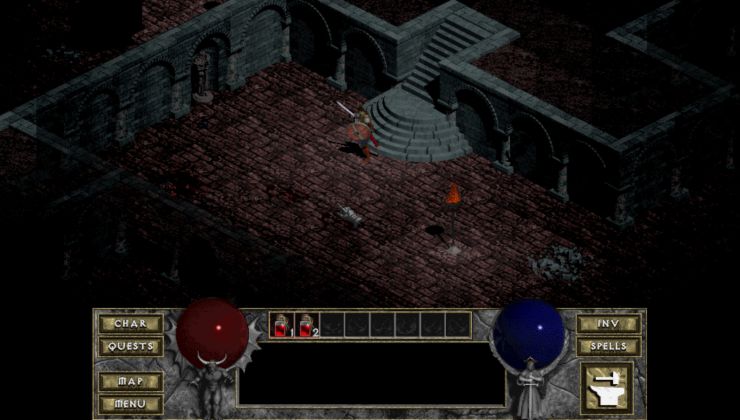Return to Part 1: Dumpster Diving
Continued from Part 41: The Worm Turns
While the studio's destiny would later see it become consumed by Microsoft, in its earliest days Bungie instead stayed a Mac focused development house, whose Marathon games were for a time kept exclusive to that platform. Starting with the release of Myth: The Fallen Lords in 1997 they switched to cross-platform development, which soon caught the attention of a fledgling Loki Software. With the sequel, Bungie would again cater to an underrepresented video game market.
Myth II: Soulblighter is set sixty years after the events of the original game, and while the plot can be said to be standalone, the lore makes heavy allusions back to the first game. One of the issues of the porting model is that you often only get fragments of a larger series, and I think my appreciation here did suffer from this. Myth also gets touted as being an RTS without the tedious resource gathering and base building, but I have always found combat micromanagement to be the least engaging aspect.
Along with its exclusive focus on commanding a pre-defined arrangement of troops into battle, the Myth series also innovated by being a very early example of a 3D real-time strategy title. Myth II in particular iterated on this by emphasizing the effects of weather and environmental conditions on combat, with fire and explosives being doused by water and higher elevations giving archers greater advantage when shooting arrows. Ranged units also seem especially prone to friendly fire.
Other games had taught me to keep my melee fighters in front to soak up and block attacks, but in Myth II this will prevent your archers and dwarves from making their shots, with them often firing into your own ranks. Instead, you need to keep your melee combatants out of the direct line of fire but still nearby, in order to mob the enemy as soon as they close the distance. Keeping a good handle on your dwarves in particular is half the battle, as they do not discriminate when hurling their bombs.
You get tasked with babysitting the AI, which feeds into the game as a whole feeling kind of contrived. The maps while detailed are kept small due to the demands of the 3D engine, and your objectives are static and rigid, causing me to chafe at how stage managed the game can be. I can see why people do love Myth II, as its narrow focus and tight encounter design does offer the potential for someone to attain total mastery, but for me I have to admit it felt a chore playing it through to the end.
On a technical level the Linux port by Loki both installed and ran well for me, but 3D acceleration was always a sticking point. Myth II: Soulblighter was developed with 3dfx Glide in mind, and out of the box that is the only 3D API that the game supports outside of software rendering. OpenGL support was included in a later patch, still available through the Loki Update tool, but on my hardware and with my drivers I actually found that the software renderer looked and performed better.
Later patches also provide support for Myth II: Chimera, an eight level expansion developed by fans with the participation of Bungie. To get this to work I used the chimera-1.0.run installer which will add the new levels to the mission selection screen, which are of a high quality only let down by some amateurish presentation; the new voice acting is flat when compared to the excellent narration of the base game, but even there, some of the more incidental voices could still be rather silly.
The greatest flourish in Myth II are the animated cutscenes, a nice little time capsule of a style of adult animation that has since fallen out of favour, reminding me of shows like the contemporary Spawn animated series of the time. Another fine touch is the game allowing you to record demos of your battles in order to play them back again later, even if it does further emphasize the preformative nature of the scenarios. If you really want to show off your perfect run, this is the way to do it.
These demos can even be ran easily on newer computers thanks to Project Magma, another fan effort similar to the OldUnreal project that maintains a modern branch of the Myth II engine with the full blessing of Bungie. The graphical installer provided on the Project Magma website will read the data off either a Linux or a Windows and Mac CD-ROM of the game, both of which are still easy to find second hand even today; only the Linux version of Quake III Arena shows up more often on eBay.
It also offers a great option for those who still want to engage with Myth II multiplayer, a feature very much advertised on the box that I may want to try myself now that I have gotten a handle on the mechanics. I enjoyed using the The Deceiver's magic to convert the dark forces over to my side, so being able to play as them in multiplayer might make for a refreshing change. But for now, I might just outdo myself by covering perhaps the most obscure Linux developer I have written about to date.
Carrying on in Part 43: Demons and Angels
Return to Part 1: Dumpster Diving
https://icculus.org/~hamish/retro/part42.html
These demos can even be ran easily on newer computers thanks to Project Magma,
Also note that the first myth has been ported to this version and is available as a plugin with the name: The Fallen Levels v2.
Also note that the first myth has been ported to this version and is available as a plugin with the name: The Fallen Levels v2.Neat, I did not actually know that.








 How to set, change and reset your SteamOS / Steam Deck desktop sudo password
How to set, change and reset your SteamOS / Steam Deck desktop sudo password How to set up Decky Loader on Steam Deck / SteamOS for easy plugins
How to set up Decky Loader on Steam Deck / SteamOS for easy plugins
See more from me